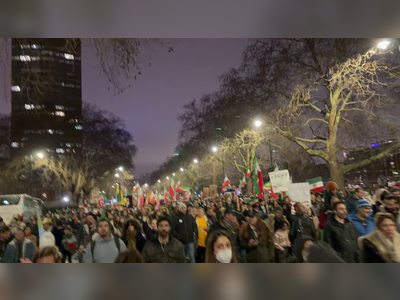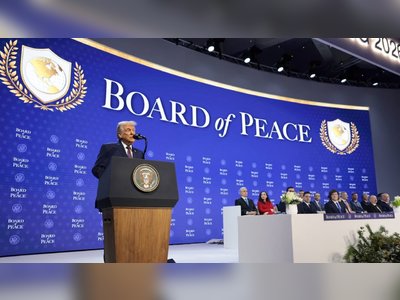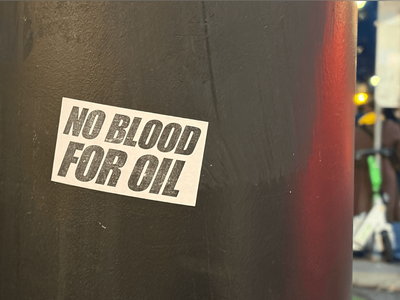
Pakistan's Former Prime Minister Imran Khan Sentenced to 14 Years in Corruption Case
A landmark ruling as Pakistan's political tensions escalate amid ongoing allegations of graft involving the Al-Qadir Trust.
In a landmark judicial verdict with potential reverberations across Pakistan's political landscape, former Prime Minister Imran Khan has been sentenced to 14 years in prison on charges of corruption.
The case, centering on the Al-Qadir Trust, has also led to the conviction of Khan's wife, Bushra Bibi, who received a seven-year sentence.
This development is a significant chapter in Khan's tumultuous political career marked by continued legal entanglements.
The sentence was handed down by a Pakistan court, a clear indication of heightened scrutiny over political figures in a country long plagued by allegations of corruption.
These particular charges involve the Al-Qadir Trust, a welfare foundation established by Khan and his wife, suggesting financial misconduct in its operations.
Khan has been held at a jail near Islamabad since August 2023, facing approximately 200 legal cases, which PTI, his political party, denounces as a strategy to remove him from political contention.
Despite the verdict, Khan remained unyielding, asserting from the courtroom, 'I will neither make any deal nor seek any relief.' While Bushra Bibi, a prominent faith healer, was taken into custody following the ruling, PTI plans to appeal, alleging the convictions are politically motivated.
The timing of this conviction has attracted particular attention, occurring just a day after PTI leaders met with government officials with the aim of reducing political hostilities.
Analysts have suggested that these discussions might have had an impact on the legal proceedings.
Since his removal from office in 2022, Khan has been a vocal critic of Pakistan's military establishment, famously challenging the generals who many view as central to Pakistan’s political machinations.
Imran Khan's political journey—from a celebrated cricketer to a transformative, yet controversial, figure in Pakistan’s governance—has been peppered with legal hurdles.
Many claims against him prior to this have collapsed under scrutiny, but this sentencing in the Al-Qadir Trust case intensifies the legal campaigns against him while coinciding with his strong criticism of military influences in state affairs.
Following his ejection from an electoral role, especially in the upcoming February polls, Khan's enduring popularity presents a formidable challenge to the current governing coalition, which ascended amidst a broad military-backed suppression of PTI’s appeal.
Khan's predicament has garnered international attention, with voices in the global community—including a United Nations panel—raising concerns about the legitimacy of his detentions, describing them as politically motivated to prevent his political resurgence.
As legal proceedings advance, Khan’s situation adds another intricate layer to the convoluted political climate of Pakistan.
The question looming large is how these judicial maneuvers will align with, or counterbalance, the ruling coalition's grip on power, and whether they might catalyze greater civic discord.
As appeals are lodged and international critiques mount, the unfolding events will undeniably shape the immediate political trajectory of the nation.
The case, centering on the Al-Qadir Trust, has also led to the conviction of Khan's wife, Bushra Bibi, who received a seven-year sentence.
This development is a significant chapter in Khan's tumultuous political career marked by continued legal entanglements.
The sentence was handed down by a Pakistan court, a clear indication of heightened scrutiny over political figures in a country long plagued by allegations of corruption.
These particular charges involve the Al-Qadir Trust, a welfare foundation established by Khan and his wife, suggesting financial misconduct in its operations.
Khan has been held at a jail near Islamabad since August 2023, facing approximately 200 legal cases, which PTI, his political party, denounces as a strategy to remove him from political contention.
Despite the verdict, Khan remained unyielding, asserting from the courtroom, 'I will neither make any deal nor seek any relief.' While Bushra Bibi, a prominent faith healer, was taken into custody following the ruling, PTI plans to appeal, alleging the convictions are politically motivated.
The timing of this conviction has attracted particular attention, occurring just a day after PTI leaders met with government officials with the aim of reducing political hostilities.
Analysts have suggested that these discussions might have had an impact on the legal proceedings.
Since his removal from office in 2022, Khan has been a vocal critic of Pakistan's military establishment, famously challenging the generals who many view as central to Pakistan’s political machinations.
Imran Khan's political journey—from a celebrated cricketer to a transformative, yet controversial, figure in Pakistan’s governance—has been peppered with legal hurdles.
Many claims against him prior to this have collapsed under scrutiny, but this sentencing in the Al-Qadir Trust case intensifies the legal campaigns against him while coinciding with his strong criticism of military influences in state affairs.
Following his ejection from an electoral role, especially in the upcoming February polls, Khan's enduring popularity presents a formidable challenge to the current governing coalition, which ascended amidst a broad military-backed suppression of PTI’s appeal.
Khan's predicament has garnered international attention, with voices in the global community—including a United Nations panel—raising concerns about the legitimacy of his detentions, describing them as politically motivated to prevent his political resurgence.
As legal proceedings advance, Khan’s situation adds another intricate layer to the convoluted political climate of Pakistan.
The question looming large is how these judicial maneuvers will align with, or counterbalance, the ruling coalition's grip on power, and whether they might catalyze greater civic discord.
As appeals are lodged and international critiques mount, the unfolding events will undeniably shape the immediate political trajectory of the nation.











